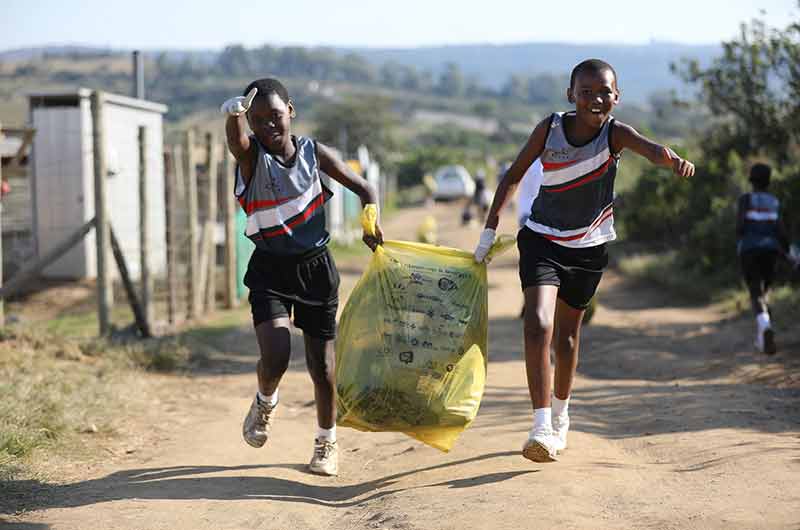In a landmark celebration of two decades of environmental education, WESSA proudly hosted the Eco-Schools Awards, honouring the transformative impact of the Eco-Schools programme across the nation.
For the past 20 years, the Eco-Schools initiative has been instrumental in promoting sustainability and conservation practices within schools and communities. WESSA Eco-Schools have taken the lead in environmental education, equipping students, teachers, and local communities with the knowledge and tools to champion environmental stewardship, encouraging a culture of environmental awareness and responsibility.
Over 2,300 schools have registered for the Eco-Schools programme, engaging more than 1.3 million learners and 32,000 teachers in direct and indirect environmental education efforts. These outstanding statistics highlight the significant impact of the Eco-Schools initiative in shaping environmental consciousness of South Africa’s youth.
The recent annual WESSA Eco-Schools Awards ceremonies, held across six regions, serve as a platform to commend schools, teachers, and learners for their exceptional commitment and achievements in promoting environmental stewardship. Through partnerships with organisations such as Sun International, eWASA, Nedbank, and others, WESSA has been able to amplify the reach and impact of the Eco-Schools programme, driving positive change in communities nationwide.
Among the notable recipients of this year’s awards are Epworth School and The Birches Pre-Primary School in KZN, honoured with Emerald awards for their sustained dedication to environmental action over 20 years. Additionally, 40 International Green Flags were awarded nationally, recognizing schools for their outstanding environmental efforts.
In a shining example of environmental leadership, Kabega Primary School in Gqeberha received a prestigious Diamond award for their decade-long commitment to sustainability. Through initiatives like a comprehensive recycling programme and integrated environmental curriculum, Kabega Primary has emerged as a model of promoting active citizens of environmental stewardship, inspiring change within their school and beyond.
The Department of Basic Education has identified local teacher support as a key objective for achieving educational quality.
Busi Dladla, Director for Curriculum General Education and Training, outlined that by incorporating WESSA Eco-Schools activities into the curriculum, educators provide students with practical experiences that enhance their learning outcomes while nurturing a culture of sustainability.
Dladla’s emphasis on the synergy between Eco-Schools and CAPS curriculum highlights the programme’s significance in shaping holistic education that prepares learners for the challenges of the 21st century. Through project-based learning initiatives, WESSA Eco-Schools empower students to become active participants in their education, encouraging critical thinking, problem-solving skills, and environmental awareness.
Nomfundo Ndlovu, WESSA’s Schools Programme Manager, expressed her pride in the accomplishments of participating schools and the enduring impact of the Eco-Schools programme. “These awards reflect the dedication and passion of our educators and learners towards environmental awareness and action,” she remarked.
For more information about the WESSA Eco-Schools programme and the awards ceremony, please contact Nomfundo Ndlovu at nomfundo.ndlovu@wessa.co.za.

